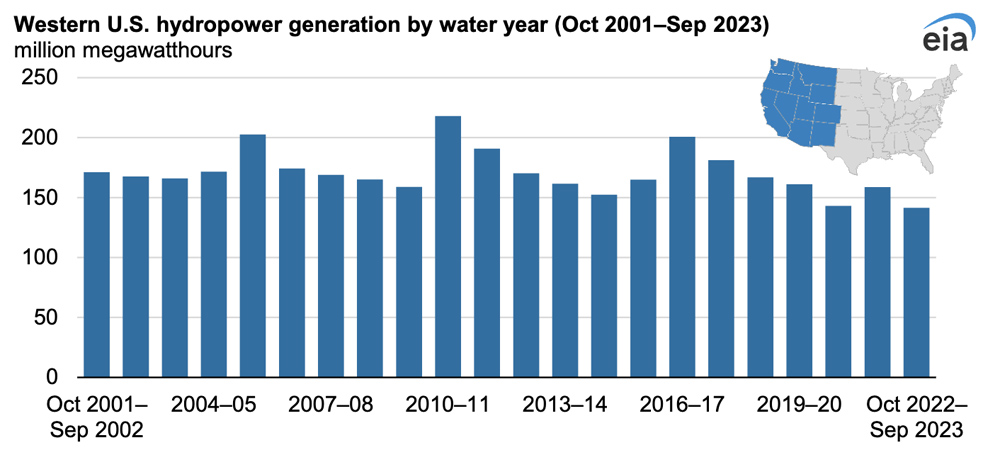Michigan’s 800-MW Palisades nuclear power plant, which was decommissioned in 2022, could become the first nuclear plant in the U.S. to be restarted, helped by a $1.52 billion loan from the federal Department of Energy’s Loan Programs Office (LPO).
The agency’s conditional commitment for the loan to Florida-based Holtec International would also be the first offered under the Energy Infrastructure Reinvestment program, which is funded by the Inflation Reduction Act, according to the March 27 announcement. The program aims to “finance projects that retool, repower, repurpose or replace energy infrastructure that has ceased operation,” LPO said.
Once restarted, the plant would protect “600 good-paying, high-skill jobs and clean, reliable power for 800,000 homes,” Michigan Gov. Gretchen Whitmer said in a statement. “Palisades will be the first successfully restarted nuclear power plant in American history, driving $363 million of regional economic impact and helping Michigan lead the future of clean energy.”
Whitmer has been pushing for the Palisades restart, and the Michigan Legislature last year provided $150 million in state funding for the project.
Holtec also intends to build two small modular reactors on the site, according to LPO.
Holtec CEO Kris Singh called the loan “a triumph for the United States in our collective pursuit of a clean and dependable energy future. … The repowering of Palisades will restore safe, around-the-clock generation to hundreds of thousands of households, businesses and manufacturers.”
LPO expects the project to avoid close to 4.5 million tons of carbon dioxide emissions per year and 111 million tons of CO2 in 25 years of operation — the equivalent of taking 970,000 gasoline-powered cars off the road per year.
Holtec has signed two long-term power purchase agreements with two electric cooperatives for the plant’s output. Wolverine Power Cooperative provides electricity for five co-ops in Michigan, and Hoosier Energy, an alliance of 18 co-ops, serves customers in Indiana and Illinois.
Speaking at an industry conference last year, Wolverine COO Zach Anderson said the Palisades PPA met all the co-op’s top priorities for new power. “It’s a long-term, stable, 100% carbon-free, 24/7 power supply, so it’s decarbonized and reliable,” as well as cost competitive, Anderson said.
Reactions
Doug True, senior vice president and chief nuclear officer at the Nuclear Energy Institute, said the loan signals the Biden administration’s “willingness to explore opportunities to preserve our existing nuclear fleet,” as well as support for “the pivotal role nuclear energy plays in our nation’s clean energy future.”
Patrick White, research director at the Nuclear Innovation Alliance, sees the loan as an indication of LPO’s willingness to fund more nuclear projects going forward. The office previously helped fund the long-delayed and costly Vogtle Units 3 and 4 in Georgia with $12 billion in loans.
But White cautioned that the restart likely will be a one-off project, rather than the first of many. Repowering Palisades is not “something that’s generally applicable to plants that have been decommissioned,” White said in an interview with RTO Insider.
“I believe when Palisades was being kind of shut down and moving from its previous life in operation into decommissioning, there was an idea that the plant [might] be restarted,” he said. “So, the owner took a lot of steps to make sure the plant was kept in essentially ready-to-go condition.”
In a statement provided by the American Nuclear Society, Keith Drudy, a Michigan native and nuclear engineer who worked on Vogtle 3 and 4, said, “Restarting Palisades from its current state is really no more complicated than returning from a significant maintenance outage ― something that nuclear plants do every 18 to 24 months. The nuclear industry knows how to do maintenance, implement upgrades and enhancements, and … keep these plants running for 60 years and beyond.
“The unique challenge here is that, until now, there has been no regulatory process or precedent for declaring that a licensee intends to cease operations of a plant and then return that plant back to operating status from a regulatory perspective,” Drudy said. “That process is now being developed, and I have no doubt that the [Nuclear Regulatory Commission] and other impacted regulatory agencies can and will ensure the restart of these units meets all standards and requirements.”
Holtec began the relicensing process for Palisades with the NRC in October 2023 and is targeting a final decision by the end of 2025, according to Patrick O’Brien, the company’s director of government affairs and communication.
Anderson said Wolverine expects to start receiving power from the plant by 2027.
Holtec’s History
Located on the southeast shore of Lake Michigan, the Palisades nuclear plant began operation in 1971. It was originally owned by CMS Energy and its primary utility, Consumers Energy, and was acquired by Entergy in 2007.
Consumers continued to buy power from the plant, but changing market conditions led to Entergy’s decision to close Palisades in 2022, citing the availability of cheaper power from renewables and natural gas. Power from the plant could cost 57% more than other generation, according to a report by Bridge Michigan.
Even before the plant ceased operation in May 2022 and was sold to Holtec for decommissioning, Michigan officials began looking at options for restarting it. Holtec made an unsuccessful application for funding from DOE’s Civil Nuclear Credit Program, which received $6 billion in funding from the Infrastructure Investment and Jobs Act to help plants at risk of closure.
The company began its application process with LPO in 2023. The announcement of the conditional commitment begins a negotiation process under which Holtec will have to reach specific technical and financial milestones before the loan is finalized.
But the decision could prove controversial for a number of reasons, first and foremost the company’s history of financial missteps. In January, Holtec agreed to a $5 million settlement with New Jersey to avoid criminal prosecution over allegations that it provided inaccurate information to obtain $1 million in state tax credits in 2018. While accepting the settlement, the company denied any wrongdoing.
Holtec has a large campus in Camden. As part of the settlement, it agreed to hire a state-approved independent reviewer to monitor any future applications it makes for New Jersey state benefits.
The company was also barred from doing business with the Tennessee Valley Authority for 60 days in 2010, after it was implicated in a scandal involving kickbacks to a TVA official from a Holtec contractor, according to a report from InsiderNJ.
Another concern is that Holtec’s business is focused on decommissioning nuclear plants; it has never actually operated one.
O’Brien acknowledged that the company’s lack of operational experience is “generally true. … But with the decommissioning, we retained qualified staff, including operators, maintenance, radiation protection and other craft [workers] that have years of experience in plant operations. The Palisades team is comprised of a hard-working team that safely operated the facility for over 50 years. In addition, we will be partnering with a licensed operator for restart.”


